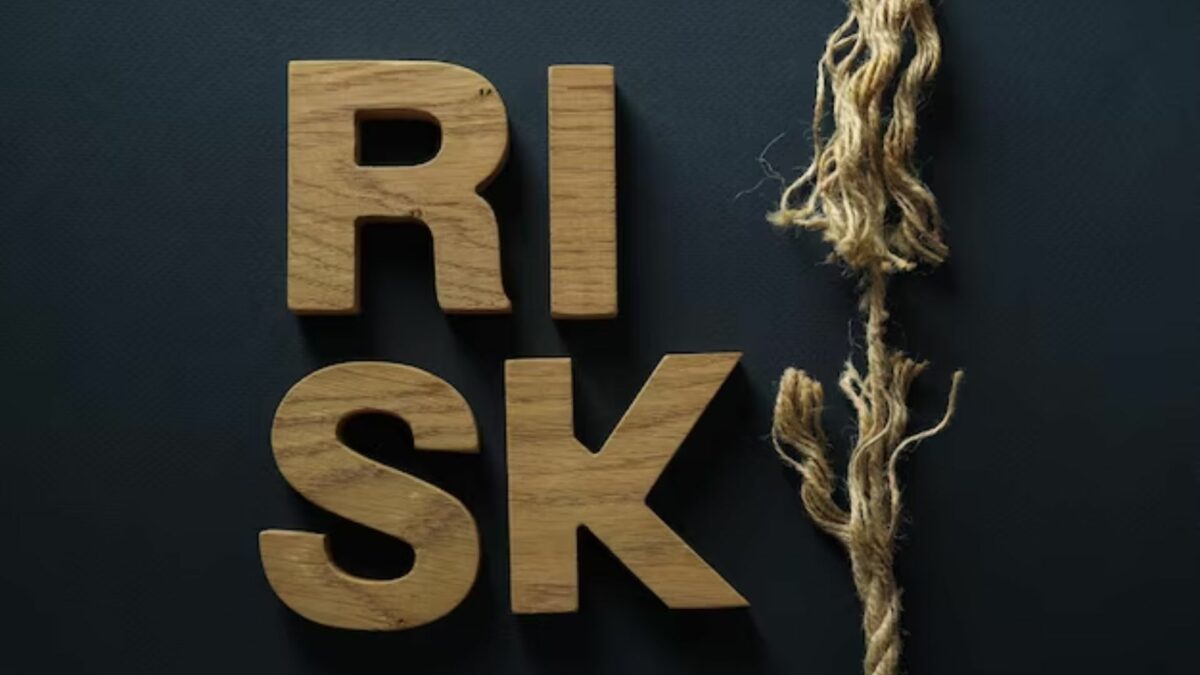“The fear of death is the most unjustified of all fears, for there’s no risk of accident for someone who’s dead?
–Albert Einstein
When I was a kid, I used to read Choose Your Own Adventure books. For those of you who are unfamiliar with the genre, you were the main character in a story. The first few pages were an initial vignette, and then you had to make a decision. If, for example, you went into the cave, you’d turn to page 33, but if you went to the lagoon, you’d go to page 52.
Occasionally, these choices spelled doom and gloom for your hero character. You’d step into a pit of monsters and that would be the end.
Except, of course, you could always go back to the previous spot and make a different decision.
Life rarely offers these opportunities to turn the page back and make different decisions. Once we’ve chosen, we’re forced to live with the consequences of our actions.
Most of the time, bad outcomes from our decisions aren’t truly that bad. We go to a restaurant where the waiter was surly. We buy cable packages with channels we never watch. The TripAdvisor reviews about the hotel we chose for our vacation were overly flattering.
Those are inconvenient outcomes, but we can shrug them off and move on with our lives.
Some outcomes, though, aren’t as easy to move on from.
Therefore, when we’re faced with risk and potential bad outcomes, we have three choices for how to deal with that risk:
- Reduce the risk. Driving around on bald tires? Change the tires and reduce the risk of a blowout on the Interstate.
- Accept the risk. Each time you step on a plane, you’re taking a risk that the plane is going to fall out of the sky. The chances are very low (though our limbic systems tell us that the risks are much higher), and it’s not like you can fly the plane better than the pilot, so you accept the risk and take that flight.
- Insure the risk. When a bad outcome would be devastating to you or your family, you can pay someone else a small amount of money to pay up in the event that the bad outcome happens. It’s why we have health insurance, life insurance, auto insurance, homeowners’ insurance, long-term care insurance, and disability insurance.
As a financial planner, one of my primary goals is to make sure that you’re protected against bad outcomes. One of the biggest mistakes I see people make is accepting risks they should be insured against and insuring risks that they should be accepting.
For example, few people come to me with an adequate disability insurance policy in place. If you’re young, then one of the biggest risks you face is the inability to work, as it’s your income that provides the foundation for you to build a retirement nest egg. Yet, when we’re young, we think we’re Superman or Superwoman and will never get sick or injured. Those who do, though, do not have adequate protection.
On the flip side, people insure against risks that don’t really need insurance. They buy whole life insurance for their infants. They buy cancer riders on their life insurance policies (if your insurance agent tries to sell you cancer insurance, fire him). Agents who sell these policies play on your emotions and fears. Parents of newborns are scared about losing that bundle of joy. I’m scared to even hold infants lest I damage them! Most of us, somewhere deep down in our brains, have an irrational fear of dying of cancer. In 2018, 609,640 people died of cancer in the United States, which, while a huge number, is only about 20% of the overall death rate in our country.
Insurance and risk management is an enormously important topic, so that’s why I’ve volunteered to host the 195th Cavalcade of Risk.
What made the cut?

- When I was a plebe at West Point, we had to memorize five poems for our English 102 final exam. Massachusetts attorney Nina Kallen brings back those memories when she cites John Donne’s Meditation 17, more commonly known as “For Whom the Bell Tolls.? Her discussion on flood insurance argues for owning flood insurance if you live in a flood zone. As it stands, FEMA often comes in and helps out those who don’t have flood insurance. They accept risk but then don’t have to deal with the consequences. Our family had a personal reminder of this, as a property near Boulder, despite being at 8.200 feet in elevation, received significant flood damage. The family accepted the flood risk, and a 100 year flood came in and made us pay for it. When you accept risk, you have to accept the consequences.
- Obamacare is quite a hot insurance topic (Which color is right for you? I think it’s Bronze in most cases). Proponents say that it gives insurance options to those who would not otherwise qualify for health insurance, and opponents say that no healthy people will join the healthcare exchanges provided via Obamacare, making it prohibitively expensive. Dr. Jaan Sidorov cites lack of anecdotal evidence in the media from healthy people joining the exchanges as an argument that Obamacare will experience the health insurance death spiral.
- If you’re going to enroll in the Obamacare health exchanges, Hank Stern points out that you need to know the correct deadlines for enrollment.
- Finally, if you’re injured at work, you shouldn’t be tuning in to television commercials or looking at the backs of bus stops to find ways to get compensated. You should be focused on your recovery and rehabilitation so that you can return to work as quickly as possible. Workers’ compensation is not an excuse to have an extended vacation. Bob Wilson argues that insurance providers who offer workers’ compensation coverage have provided the wrong incentives for workers to return. Instead of naming it workers’ compensation insurance, they should name it workers’ recovery insurance. Injured workers will focus on rehabilitation and returning to the ranks of productive members of society as quickly as possible, and insurance companies will have to pay less in claims.
Want to read more about my thoughts on insurance and risk? Check out some of these articles:
- Bronze May be the Most Precious Metal Under Obamacare
- Is Obamacare Viable for Early Retirees?
- Longevity Insurance for the Long Haul
- What to Do If You Receive a Life Insurance Benefit
- An Evaluation of a Indexed Universal Life Insurance Plan
- Are We Taking the Wrong Retirement Risks?
Author Profile
- John Davis is a nationally recognized expert on credit reporting, credit scoring, and identity theft. He has written four books about his expertise in the field and has been featured extensively in numerous media outlets such as The Wall Street Journal, The Washington Post, CNN, CBS News, CNBC, Fox Business, and many more. With over 20 years of experience helping consumers understand their credit and identity protection rights, John is passionate about empowering people to take control of their finances. He works with financial institutions to develop consumer-friendly policies that promote financial literacy and responsible borrowing habits.
Latest entries
 Low Income GrantsSeptember 25, 2023How to Get a Free Government Phone: A Step-by-Step Guide
Low Income GrantsSeptember 25, 2023How to Get a Free Government Phone: A Step-by-Step Guide Low Income GrantsSeptember 25, 2023Dental Charities That Help With Dental Costs
Low Income GrantsSeptember 25, 2023Dental Charities That Help With Dental Costs Low Income GrantsSeptember 25, 2023Low-Cost Hearing Aids for Seniors: A Comprehensive Guide
Low Income GrantsSeptember 25, 2023Low-Cost Hearing Aids for Seniors: A Comprehensive Guide Low Income GrantsSeptember 25, 2023Second Chance Apartments that Accept Evictions: A Comprehensive Guide
Low Income GrantsSeptember 25, 2023Second Chance Apartments that Accept Evictions: A Comprehensive Guide

